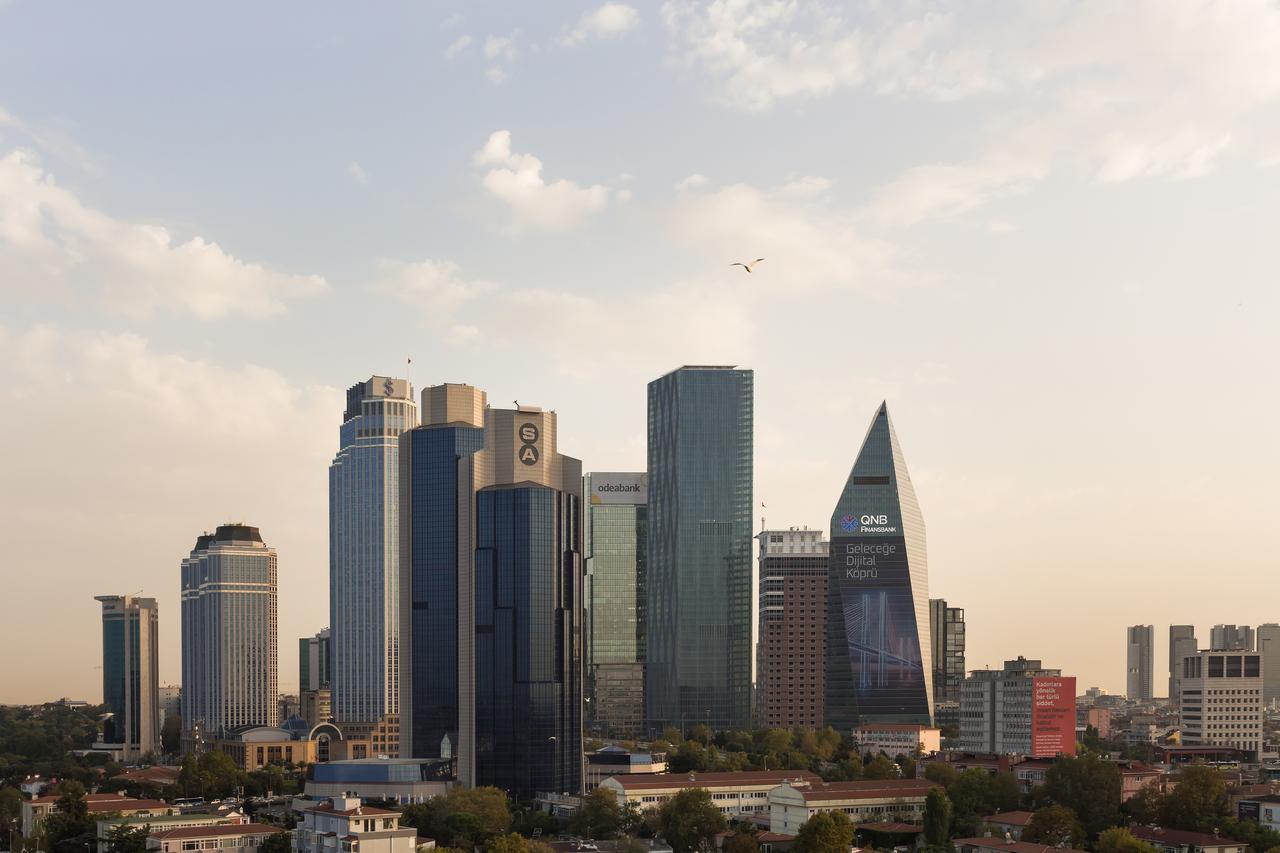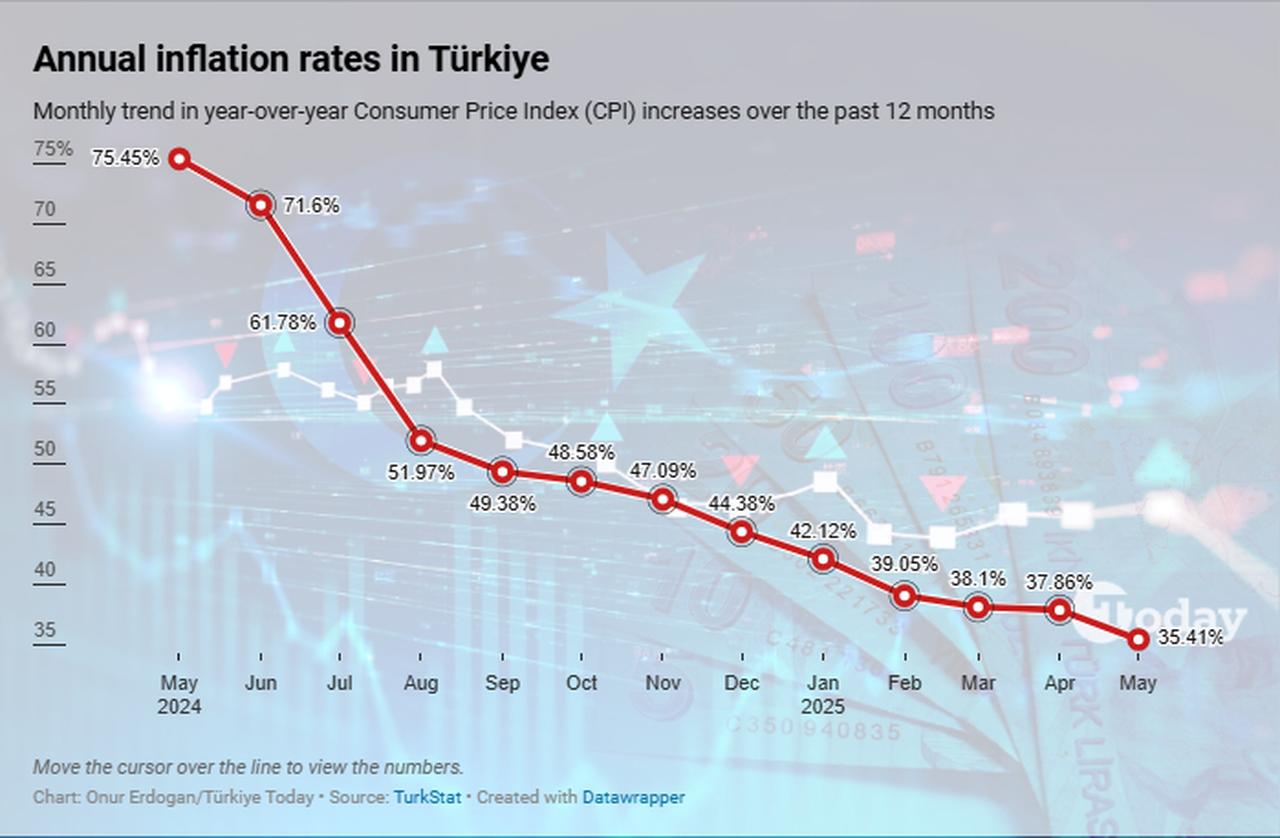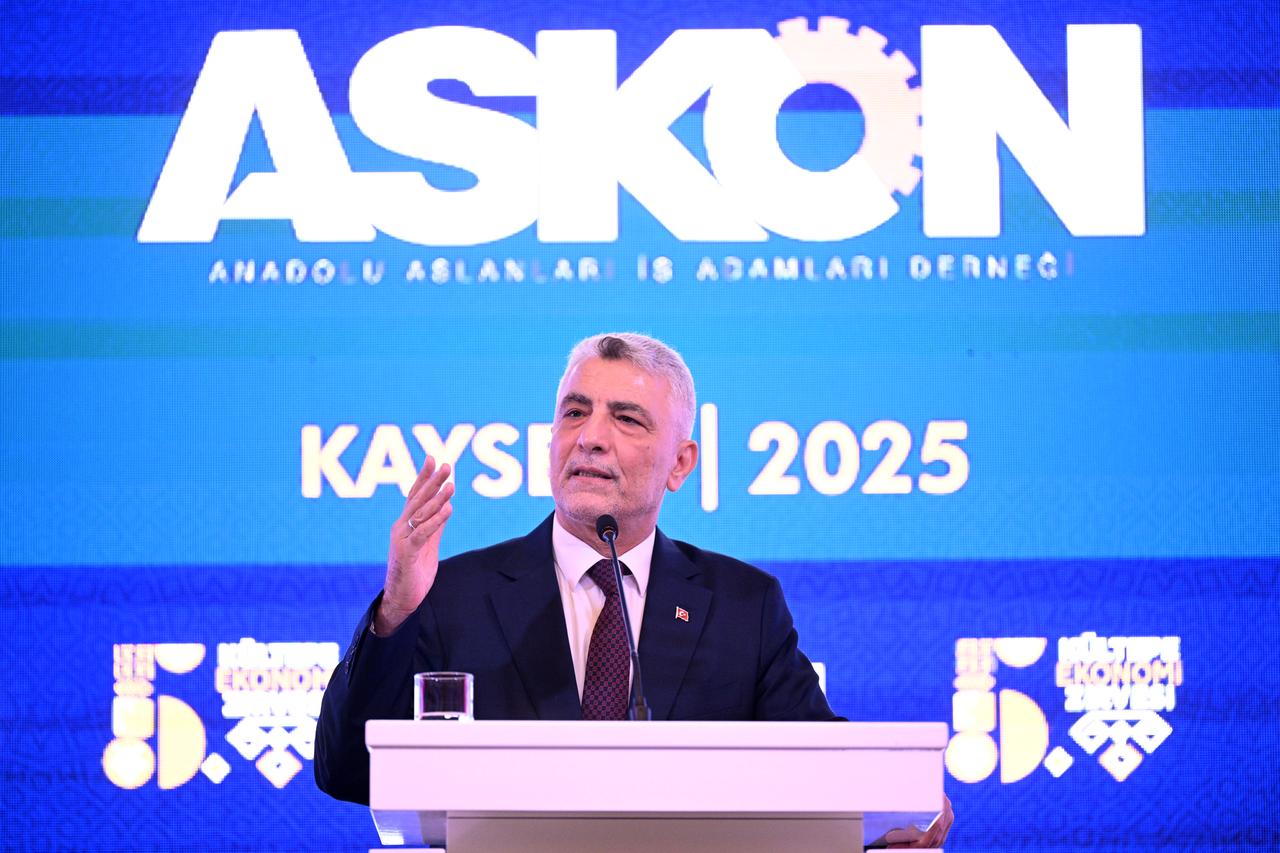
Türkiye’s top economic authorities reaffirm their commitment to disinflation and sustainable growth, even as geopolitical instability intensifies in the Middle East. Vice President Cevdet Yilmaz and Trade Minister Omer Bolat indicate that the 10% inflation target is expected to be achieved in 2026.
In his speech at an event held at the AK Party’s headquarters in Ankara on Saturday, Vice President Cevdet Yilmaz emphasized that Türkiye’s economic program is delivering consistent results on the inflation front. He noted that annual inflation declined to 35.41% in May, continuing a steady downward trend since peaking in May 2023, and is expected to fall to around 20% by the end of this year.
Yilmaz said inflation would gradually become more manageable. “In the coming period, you will see that we are in a better place regarding service inflation as well,” he noted. He added that the government anticipates inflation dropping into the 10% range next year and reaching single-digit levels in the following years.

Trade Minister Omer Bolat also spoke on regional developments during his remarks at the Kultepe Economic Summit in Kayseri on Saturday, describing Türkiye as working to remain a stronghold amid intensifying instability in the region.
“Türkiye is trying to stand as a strong fortress against Israel’s banditry and barbarism,” Bolat said, while reaffirming the government’s focus on internal economic stability and national security.
Bolat underlined that Türkiye continues to grow despite global uncertainty and domestic monetary tightening, as the Turkish central bank has raised its policy rate to 46%. “In the first quarter of this year, we recorded 2% growth,” he said. “This is a moderate and balanced performance, given the global slowdown and our internal fight against inflation.”
He added that the Turkish economy has now expanded for 19 consecutive quarters—nearly 5 years without contraction. “Our growth has continued uninterruptedly, even as global demand weakened and we deliberately limited domestic consumption,” he stated.

Bolat also highlighted the strength of Türkiye’s public finances. “Public debt in Türkiye is only 25% of GDP,” he said, stressing that this figure is far below the European Union’s Maastricht criterion of 60% and significantly lower than in many developed countries.
“These achievements have not been made through massive borrowing,” he explained. Instead, Türkiye has relied on financing models such as public-private partnerships and build-operate-transfer projects to fund infrastructure development.
Despite rising financing costs and tightening credit conditions, Bolat said Türkiye remains a key destination for global capital. “There are currently 86,000 foreign companies operating in Türkiye,” he stated, pointing to the country’s strategic location and production capacity.
He acknowledged that businesses are still struggling with high costs and limited access to funding, but expressed optimism. “The year 2026 will be one in which all sectors begin to feel some relief,” Bolat concluded.